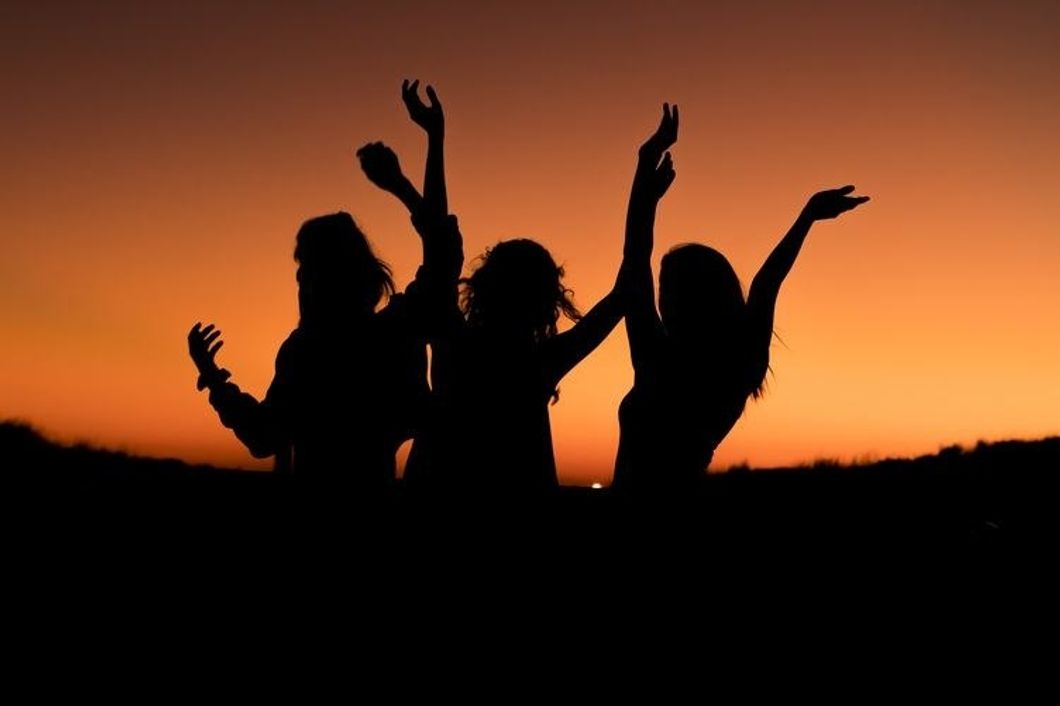Just from looking at your own extensive list of Facebook friends, Instagram followers, and even your own contact list, the notion becomes clear that this generation tends to overuse the word "friend." This proves to be problematic in the many ways that these large numbers seem to contradict where the evidence points us-that there is an increased rate of anxiety and depression, and people often feel lonely. Contact lists often consist of a significant number of people who we barely speak to, and even people we do not remember.
This pales in comparison to the list of people on Facebook who are marked as your "friend"-maybe it's your neighbor's cousin or that girl you vaguely know of through other people on social media and yet somehow she is now checked off as your "friend." But social media only serves as a vague example of the ways in which we already place ourselves in unstable, and even "public" relationships without even realizing it. Issues with relationships and how we engage with other people is not limited to social media.
One of the most detrimental and unhealthy habits of people in all types of relationships is the tendency to hold things against people. It almost functions as a defense mechanism when you determine that someone's reasons for not being able to make an event are mere excuses. We default to this unhealthy behavior of assuming the worst in people, often holding these hidden small grudges and allowing them to take up a significant part of our brain and memory.
We often avoid confrontation or arguments and instead resort to petty acts of micro-aggression, choosing to be passive with the hopes of subtly showing off our own anger towards this individual. We do not acknowledge any possibility for personal trouble and instead are willing to judge people on a whim. We assume that this behavior is protective of our own feelings and emotional stability when in reality we only increase tension and create new issues. One example of this is when someone does not text back or respond to you.
Your mind's immediate response is that this person is deliberately ignoring you and that they do not want to engage in any form of communication with you. In reality, people have many things going on in their personal lives and you never know what challenges they might be facing behind the scenes.
On the other hand, some people practice the converse behavior-forgiving too much. It is always better to forgive someone in the long run. However, it is self-destructive when we allow people to hurt us countless times in the same way. The saying goes "Fool me once, shame on you; fool me twice, shame on me" for a reason. When people maintain these traits and behaviors that hurt you, it is your own responsibility to recognize when to walk away.
You need to acknowledge when someone else's actions and words are damaging and upsetting to you and have the courage to break the trend either by confronting them about how you feel or in simply walking away.
Another misconception about friendships is how they end. The most common representation of a "friendship breakup" or any breakup in general involves a tense buildup to a huge fight or argument. However, "ending a friendship" isn't exactly what it sounds like. If a friendship appears to be toxic or troubling to those involved, you should remove yourself from that position of vulnerability to being further hurt or disappointed. If the other person in the relationship has become judgmental and rude, there is no need to reciprocate the nativity that person has projected.
Always be the bigger person, and sometimes, this cannot be fixed by a confrontation or "heart-to-heart." The challenge is to guard yourself so that you are no longer vulnerable to being hurt in the same way. This might start by simply no longer sharing personal secrets. Ending a friendship does not have to involve a key moment where everything goes up in flames, but instead, it should be a simply step that works towards maintaining your own happiness and well-being while also eliminating negativity.
People also tend to overlook the possibility of restarting or building up a former relationship. When considering making friends, people immediately think of meeting new people and finding common interests, etc. Many of us however already have a significant list of people who are already in our lives with the potential of forging stronger bonds.
Some of these people might have been acquaintances who we never had the chance to connect with, and others might be people who we gradually lost touch with as life became more busy and chaotic. Just because you stopped talking to someone for a while does not mean there is no room for the possibility of revitalizing this old relationship. In both cases, there is always the opportunity for strengthening a bond.
Lastly, in order to have any good relationship it must be founded on positive energy. This does not imply a constant feeling of happiness but only feed kind energy into the universe. Relationships that are solely built on a mutual dislike for another person, and constantly talking badly about others behind their backs is unhealthy and also an unstable relationship. A friendship built on negativity is just as toxic as any bad relationship.
Therefore remember to emote positivity, and constantly be open to change. Prioritize your own happiness, but not at the cost of anyone else's, and remain steadfast to the person you want to be. The best relationships allow us to flourish as we intend to while fueling us with new passion and dedication that comes from unique perspectives.






























